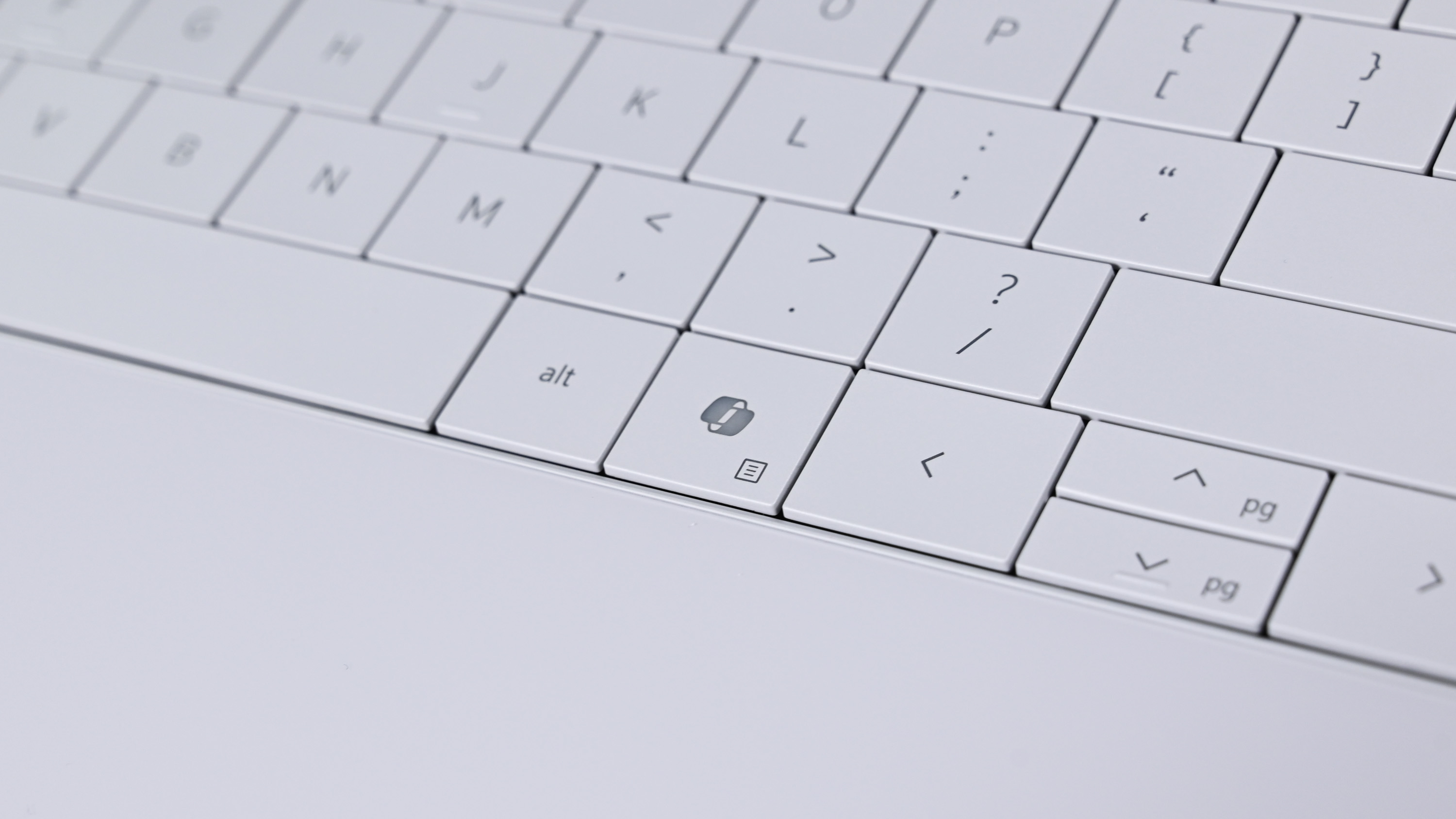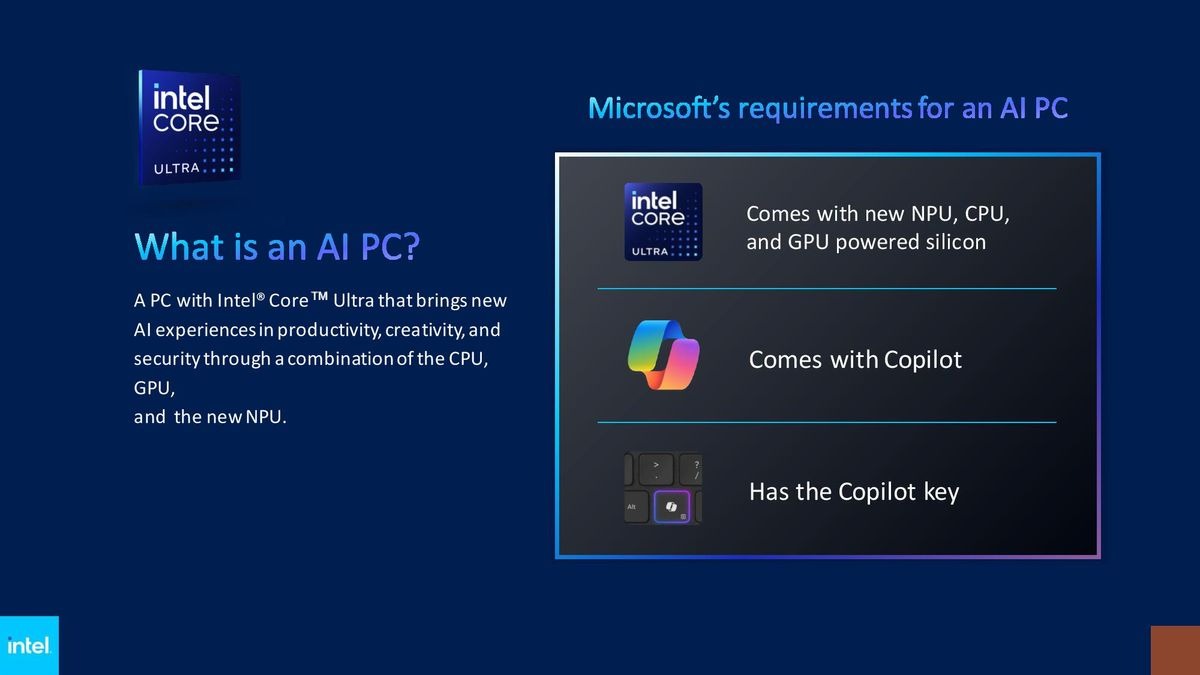Microsoft says this single key is the difference between an AI PC and just a PC with AI
Your PC isn't an AI PC unless it has a Copilot key.

What you need to know
- Intel made several AI announcements at its AI PC Acceleration Program in Taipei, Taiwan this week.
- During the event, Intel unveiled Microsoft's definition of an AI PC, which includes some surprising requirements.
- Microsoft's definition of an AI PC requires a system to have a CPU, GPU, NPU, to support Copilot, and to have a Copilot key.
- Notably, some PCs that have already shipped have a CPU, GPU, and NPU but do not have a Copilot key, meaning they do not meet Microsoft's definition of an AI PC.
Intel shared Microsoft's definition of an AI PC at its AI PC Acceleration Program in Taipei, Taiwan this week. The chipmaker is one of several industry leaders to push AI hardware. Intel's Core Ultra processors feature neural processing units (NPUs) specifically optimized for AI. Those chips compete with CPUs from AMD and Qualcomm. But regardless of which company makes the chip in your PC, your device can be an AI PC in the eyes of Microsoft. Tom's Hardware reported on the event.
Microsoft's definition of an AI PC was made jointly with Intel, though it opens the doors for AMD, Intel, or Qualcomm devices to carry the designation. According to Microsoft, a computer must have a CPU, GPU, and NPU to be an AI PC. Additionally, supporting Microsoft Copilot and having a Copilot key are requirements. That last item has caused a bit of a stir, since it means that to be labeled an AI PC a system has to have a specific key on a keyboard.
Early this year, Microsoft announced that future PCs will feature a Copilot key. The company called it the "first significant change to the Windows PC keyboard in nearly three decades." The new Copilot key will be mandatory for OEMs at some point in the near future, but some 2024 PCs lack the key. By strict definition, a computer with all the hardware needed and support for Copilot is not an AI PC unless it has a Copilot key, at least in the eyes of Microsoft.
What is an AI PC?

Apple infamously asked "what's a computer" in an ad several years ago. In 2024, the question on people's minds is "what's an AI PC?"
The saga surrounding the definition of an AI PC reminds me of the famous xkcd comic about competing standards. In that comic there are 14 competing standards, which is considered ridiculous by one of the characters. The obvious solution is to create one universal standard. As you likely guessed, this results in there being 15 competing standards.
With Qualcomm, AMD, and Intel making processors built for AI and Microsoft and other companies working on software, there isn't a clear definition of an AI PC. Even Intel has its own definition of an AI PC despite announcing a jointly created definition with Microsoft. Intel's definition is largely the same as the one announced yesterday, but Intel does not require a system to have a Copilot button or Copilot support to be an AI PC.
So, what is an AI PC? It depends on who you ask. Microsoft wants any PC marketed as an AI PC to work with Microsoft software and have a Copilot button. By that definition the $1,600 ASUS ROG Zephyrus G14 with a CPU, GPU, and NPU is not an AI PC because it doesn't have a Copilot key on its keyboard. Maybe ASUS can send users a key to swap onto the PC to earn the AI PC designation.
All the latest news, reviews, and guides for Windows and Xbox diehards.

Sean Endicott is a tech journalist at Windows Central, specializing in Windows, Microsoft software, AI, and PCs. He's covered major launches, from Windows 10 and 11 to the rise of AI tools like ChatGPT. Sean's journey began with the Lumia 930, leading to strong ties with app developers. Outside writing, he coaches American football, utilizing Microsoft services to manage his team. He studied broadcast journalism at Nottingham Trent University and is active on X @SeanEndicott_ and Threads @sean_endicott_.
